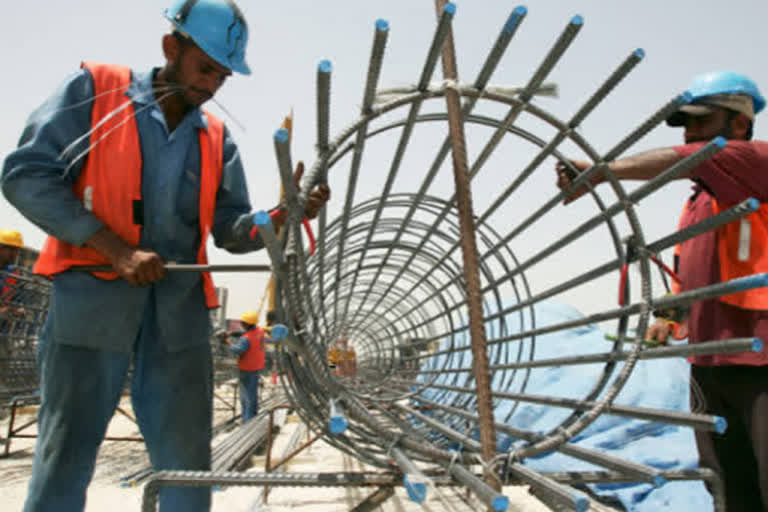Kuwait: Some 8 lakh Indians could be forced to leave Kuwait after a parliamentary committee approved a draft expat quota bill seeking to gradually slash the number of foreign workers in the Gulf country, according to media reports.
According to the bill, Indians should not exceed 15 per cent of Kuwait's population. This could result in 800,000 Indians leaving Kuwait, as the Indian community constitutes the largest expat community in the country, totalling 1.45 million.
The development may give rise to a controversy, as the entire Gulf region is home to millions of Indian expats. According to data received from Indian Missions, there are an estimated 1.36 crore Indian nationals abroad, 89 lakh of which are in the Gulf alone.
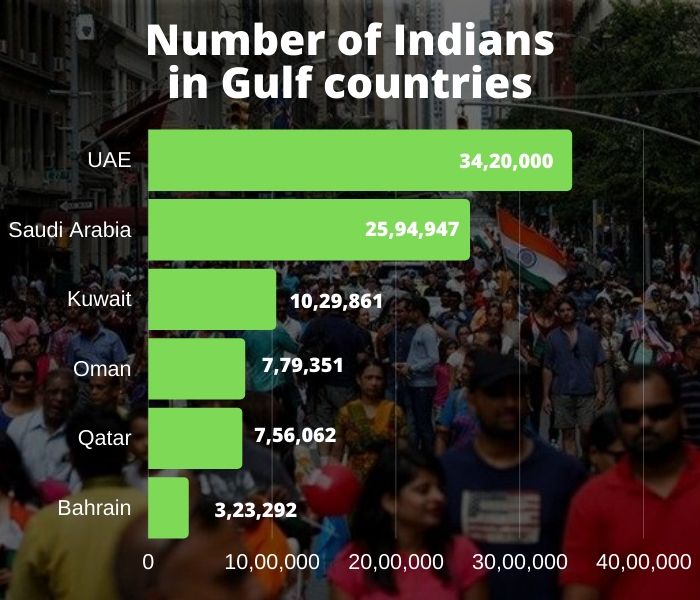
Indian migration to the Gulf:
- Migration of Indian workers to the Gulf increased after the oil boom of the 1970s. The numbers grew steadily as the Gulf economies expanded exponentially in the decades to follow. The Gulf initiated its policy of inviting foreign workers because of a small local workforce.
- Gulf countries were particularly interested in recruiting more labourers from India and other South Asian countries due to South Asian workers’ readiness to accept poorly remunerated low skilled jobs.
- A large number, around 70 per cent of Indians, work as labourers or technicians in the construction sector, as domestic servants and drivers. However, there has been an increasing trend of skilled and highly skilled migration in the past decade.Remittances to India from Guld countries
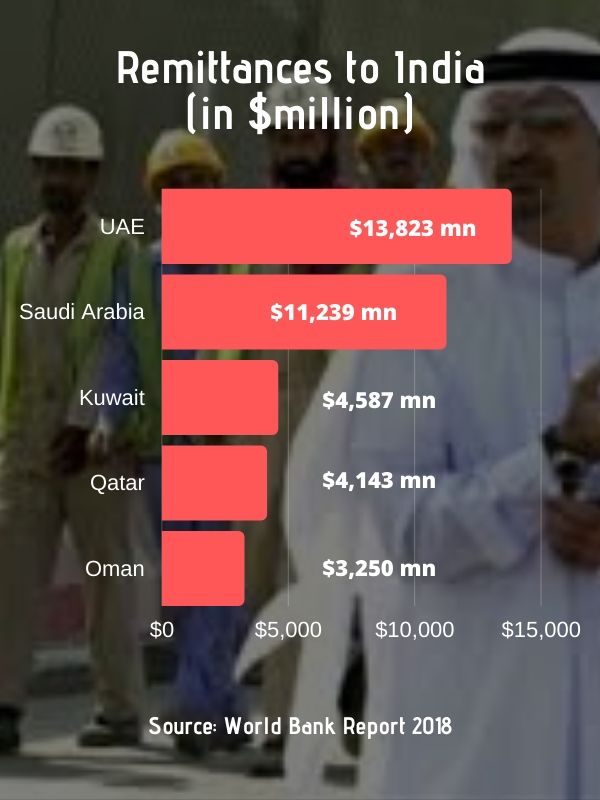
Read: 8 lakh Indians may be forced to leave after Kuwait approves Expat quota bill
However, the lives of Indians in Gulf nations are not particularly smooth, as they face multiple problems, with incidents of confinement, bondage, and non-payment of salaries are common.
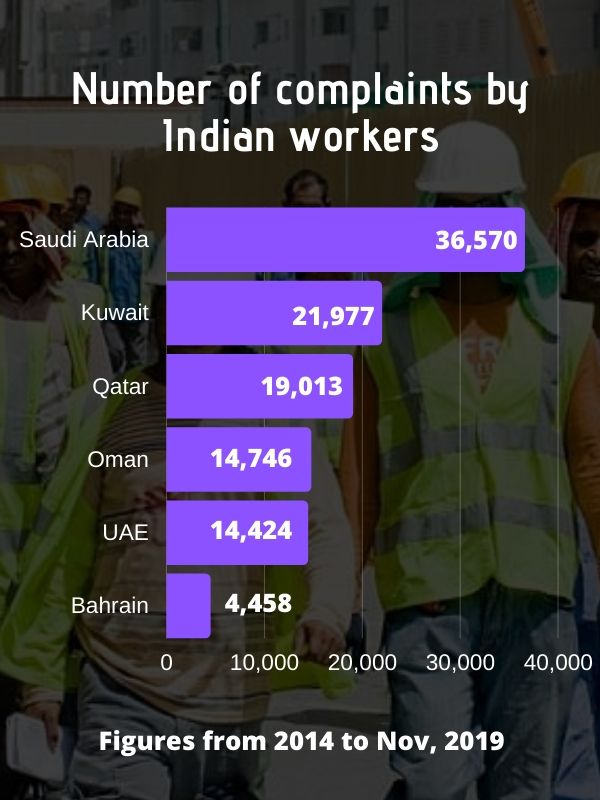
Major issues faced by Indian migrants in Gulf countries
- Non-payment of salaries
- Denial of legitimate labour rights and benefits
- Non-issuance/renewal of residence permits
- Non-payment/grant of overtime allowance
- Weekly holidays
- Longer working hours
- Refusal to grant exit/re–entry permits for visit to India
- Refusal to allow the worker on final exit visa after completion of their contracts and non-provision of medical and insurance facilities etc.
- Incidents of confinement, abandoning of housemaids by their sponsors have also been reported. Number of Indian workers dying in Gulf nations
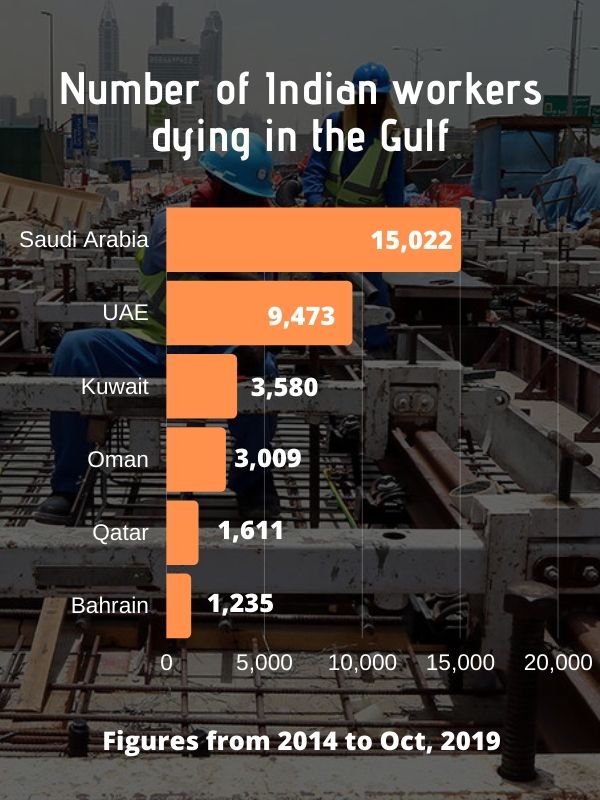
Read: Former MP Kalvakuntla Kavitha helps Gulf victim return home to Telangana village
COVID19 and impact on Indian migrant workers
- Large numbers of Indians in the Persian Gulf region are employed in low profile jobs in construction sectors, restaurants, drivers, small enterprises, service sectors and domestic services.
- Most of them need to step out daily to earn their living. These daily wage workers are often provided either with free accommodation or allowances for their accommodation and food. Besides, these workers try to increase their monthly income by doing over-time.
- Lockdowns have forced them to remain out of the workforce with no income. This has a financial impact not only on the migrants in the Gulf but also the millions of their family members in India who depend on the money sent by these migrants.
- The health and well-being of these workers are at risk, as they stay in labour camps, dormitories and shared apartments with inadequate space to maintain social distancing.
- Sub-standard living conditions and poor hygiene expose these vulnerable workers to the risk of contracting the virus. These low-income migrant workers are largely excluded from social security and health insurance in Gulf countries, which would reduce their access to healthcare-related benefits and treatment if they are infected.
Read: Rajasthan family cremates effigy of Covid patient who died in Abu Dhabi
